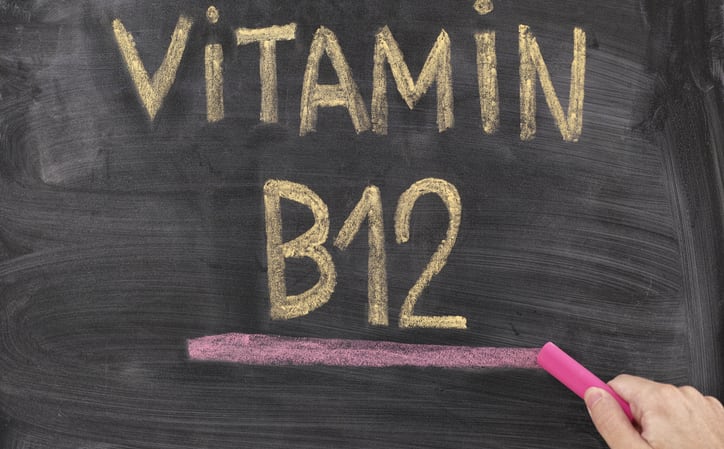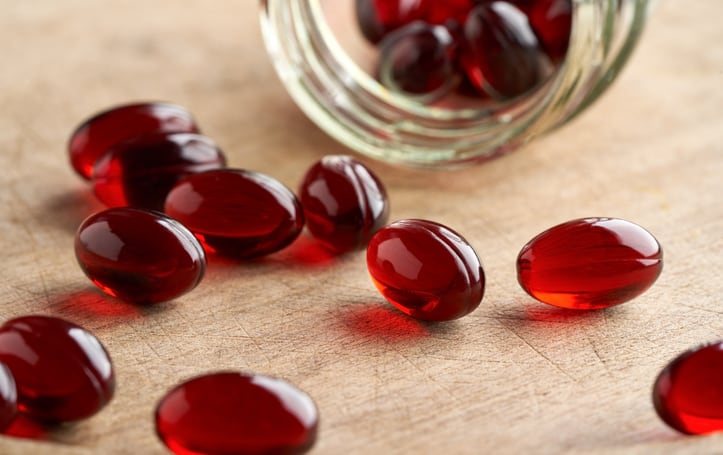The study analysed the data of 16,371 individuals who participated in the Korea National Health and Nutrition Examination Surveys (KNHANES) between year 2009 and 2017 (excluding year 2014 and 2015).
Information on their socio-demographics, family histories, lifestyles, serum heavy metal levels, food intakes, and depression were analysed.
The goal was to determine the relationships between the prevalence of depression, dietary vitamin intake, and serum heavy metal levels including mercury (Hg), cadmium (Cd), lead (Pb).
Of which, an increase in serum Cd was found to be associated with an increased risk of depression, however, this could be alleviated by an increase in vitamin intake.
Findings of the study were published in Environmental Science and Pollution Research.
Data analysis
The data from the participants – who were at least 10 years old, included information on their daily vitamin intakes, daily food intakes, their serum heavy metal level, and history of depression, if any.
Both daily vitamin intake and daily food intake were calculated by a 24-h dietary recall.
The subjects also completed a semi-quantitative food frequency questionnaire which looked at their intakes of 63 food products.
Results
The study found that serum cadmium level was significantly higher in subjects with depression.
For instance, the geometric mean serum level of cadmium was 1.11 ug/L in participants with depression and 0.81 ug/L in participants without depression.
“An increase in serum Cd was associated with an increased risk of depression, and remarkably, the risk of depression was found to rapidly decrease when vitamin B1, B3, or total vitamin A intake increased.
“These findings contribute to our understanding of the effects of heavy metals and dietary vitamin intakes on the pathogenesis of depression,” the researchers said.
In participants without depression, their geometric mean vitamin B1, B3, and A intake was 1.26mg, 13.82mg, and 481.40mg, while those with depression had lower intakes – at 0.99mg, 10.80mg, and 392.76mg respectively.
“The risk of depression decreased as vitamin intake increased. A twofold increase in daily vitamin B1, B3, or A intake reduced the risk of depression by 17 per cent, 20 per cent, and 8 per cent respectively.
“The result shows that increased daily dietary vitamin intake might protect the public against depression.
“Further studies are needed to reduce the risks posed by heavy metals and to determine more comprehensively the effects of daily dietary vitamin intake on depression,” the researchers said.
On the other hand, while other studies have reported that elevated serum levels of magnesium and lead were associated with depression, this study found no evidence of these associations.
Cadmium’s neuro impact
The mechanisms in which serum cadmium is linked to neuropsychiatric disorders is not well understood, however, the researchers have pointed out some possible explanations.
First, cadmium can cross and disrupt the blood–brain barrier, and thus, it could induce oxidative stress, and in turn, mitochondrial dysfunction and even neuronal cell apoptosis in brain tissue.
Second, it can adversely affect the central nervous system by triggering vascular damage via endothelial oxidative stress, which is a risk factor for depression.
On the other hand, vitamin B deficiency is known to play a role in the development of depression.
“Our results show that vitamin B1 consumption is inversely associated with depression in the Korean population, which concurs with a previous study, in which vitamin B1 supplementation for 6 weeks reduced depressive symptoms in 80 elderly women.
“Other studies have also reported vitamin B1 supplementation can reduce depressive symptoms and improve cognitive function among patients with geriatric depression, and in a case report, it reduced depressive symptoms in a 50-year-old man admitted to a psychiatric clinic
“To the best of our knowledge, this large-scale study is the first to report the effects of dietary vitamin intake and serum heavy metal levels on depression in a nationally representative sample of the Korean population,” the researchers said.
Source: Environmental Science and Pollution Research
Environmental science and pollution research role of heavy metal concentrations and vitamin intake from food in depression: a national cross-sectional study (2009–2017)
DOI: 10.1007/s11356-021-15986-w
Authors: Nguyen, Hai Duc et al





